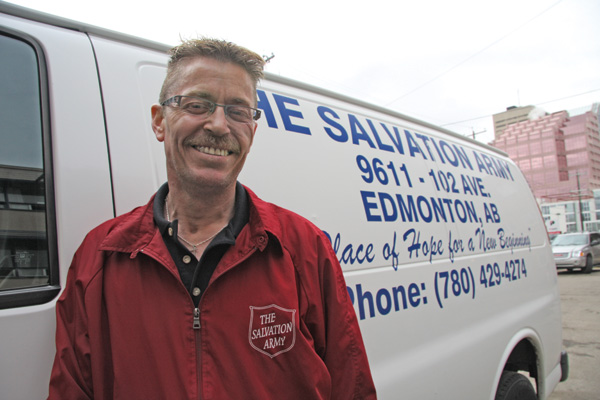 He thought it was the only way out. “I believed disappearing would solve my problems,” says 43-year-old Rory. “I was foolish enough to think a new life would be waiting for me.”
He thought it was the only way out. “I believed disappearing would solve my problems,” says 43-year-old Rory. “I was foolish enough to think a new life would be waiting for me.”
Rory was an alcoholic in denial when his marriage of 15 years disintegrated. After the mother of his two sons divorced him, he was lonely, depressed and regretful. A functional addict, he hid his problem with alcohol and continued to operate his business as a journeyman mechanic, building custom-made vehicles for clients.
The Accident
Late one rainy night, after drinking several bottles of beer, Rory's truck veered off a country road and struck a 30-metre-tall spruce tree. He was on the brink of death as the air ambulance transported him to the University of Alberta Hospital in Edmonton from the small town of Lacombe, Alta.
“The doctors told my family I might not live through the night,” says Rory. “I was in a coma, and a tracheotomy opened an airway to prevent suffocation. Tubes in my rib cage kept my collapsed lungs inflated. I had 10 broken ribs, my left cheek required 120 stitches and all my teeth on the left side were knocked out.”
To the doctors' amazement, Rory woke four days after the crash. He had no recollection of the accident. Nine days later, he went home to his apartment.
Substance Abuse
“For months I was unable to work,” says Rory. “I received disability payments from various sources. I had time and money, which was my downfall. Although alcohol was my drug of choice for more than 20 years, I started using crack cocaine. It was mind-numbing and allowed me to temporarily forget my problems.
“But the drug progressively took over my life,” continues Rory. “At the height of my addiction, I spent $1,000 a day on crack and used for as many days as I could stay awake. Sometimes this would go on for two weeks at a time. At first, money wasn't a factor. Then my bills started piling up.
“I didn't care about anything but the drug. I soon lost my home, my business and custody of my teenage sons. When I moved into my parents' basement, I carried unbearable feelings of shame and embarrassment.”
Rory was raised in a Christian home with supportive parents. They wanted nothing more than to see him sober up and make better choices. His father approached him about The Salvation Army's six-month residential drug-treatment program in Edmonton, known as the Anchorage. Rory laughed and shrugged it off. “I denied I had an issue,” says Rory. Weeks later, a broken-down Rory called his father and said, “Let's look at going to Edmonton.”
Although he knew he needed help, the thought of committing to something long-term and leaving his friends was overwhelming and frightening. Rory hopped in his truck and disappeared, trying to run away. He was more than 500 kilometres from home when his cellphone rang.
“It was The Salvation Army,” says Rory. “I chose to give recovery a chance.”
Recovery
“Moving beyond fear and addiction isn't easy,” says Rory. “Over time, the Anchorage taught me how to manage my anger and sadness. It changed my thought patterns and taught me how to deal with issues. I underwent a major transformation—personally, emotionally, spiritually and behaviourally.”
Rory has been clean and sober since June 2009. He works full-time in food services at the Anchorage addictions centre and has a healthy relationship with his sons.
“Coming to The Salvation Army, cleaning up and learning how to stay clean, has made me feel worthwhile,” says Rory. “I walk down the street with my head held high. Hopelessness is not part of my vocabulary any more.”









Leave a Comment